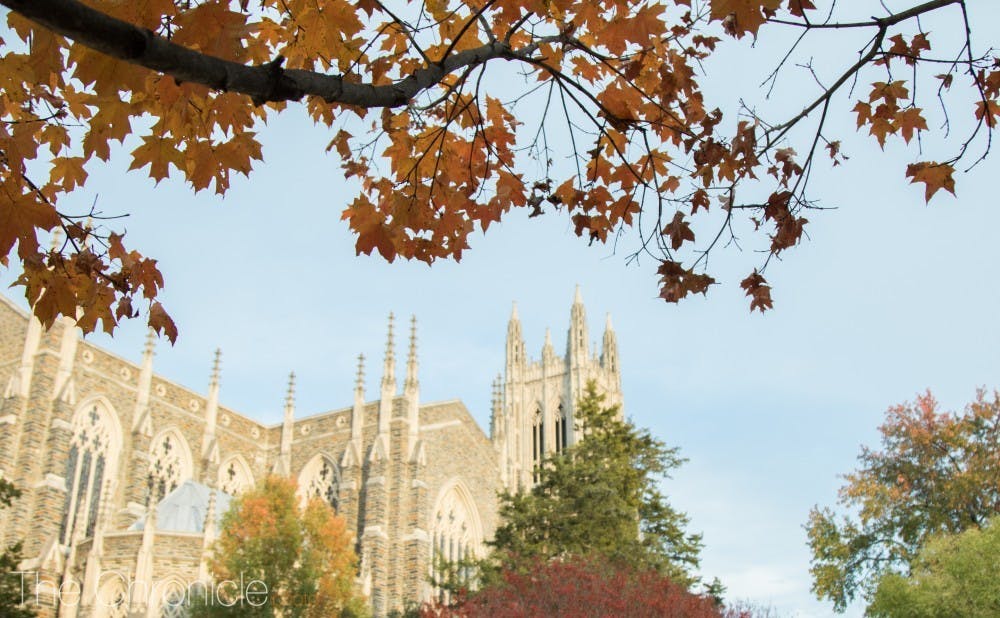A professor at the University of North Carolina at Chapel Hill has filed a class action lawsuit against Duke, alleging an illegal agreement between Duke and UNC to suppress competition over faculty.
The lawsuit alleges that a “No-Poach Understanding” between the schools was designed to suppress faculty pay by reducing competition over qualified candidates, and that the agreement violated the Sherman Antitrust Act and North Carolina state law.
According to the complaint, the alleged agreement was unearthed during litigation over a class action lawsuit filed by Danielle Seaman, who was as an assistant professor of radiology at Duke when the case was filed, alleging that she lost an employment opportunity because the Duke University School of Medicine and the UNC School of Medicine agreed not to hire each other’s employees.
Duke and the Duke University Health System agreed in 2019 to pay $54.5 million to settle the case. That case only included medical school faculty, while the new lawsuit seeks damages on behalf of other faculty at Duke and UNC—who weren’t covered by the original settlement.
The new complaint alleges that Duke and UNC reached a no-poach understanding, the purpose of which was to “suppress the pay of Duke and UNC faculty,” no later than 1974. Although the Seaman v. Duke University case focused only on a no-poach understanding between the two medical schools, the new filing alleges that a broader agreement existed between Duke and UNC.
The agreement, under which Duke and UNC did not recruit or hire each other’s faculty, allegedly included all faculty across the two universities.
Michael Schoenfeld, vice president for public affairs and government relations, wrote in a message to The Chronicle about the new allegations that Duke intends “to vigorously defend the allegations in this suit.”
“Duke University actively competes for the most talented faculty from around the world to fulfill our missions of education and research,” Schoenfeld wrote. “We are, and always have been, committed to complying with all relevant laws in our recruitment and retention efforts.”
UNC's media relations office declined to comment on the lawsuit.
The plaintiff in the newest class action lawsuit is Lucia Binotti, a Spanish professor at UNC. In the filing, Binotti requested that non-medical faculty “recover threefold the damages determined to have been sustained by them” as a result of the no-poach agreement. She also requested a jury trial in the case.
The lawsuit centers on claims that the no-poach agreement deflated faculty pay in a number of ways. Due to the close proximity and level of prestige of Duke and UNC, the complaint argues that natural competition between the universities for faculty would have driven up their pay.
“In a properly functioning and lawfully competitive labor market, Duke and UNC would compete for faculty members by recruiting and hiring from each other, particularly because Duke and UNC are only about 14 miles apart, well-within commuting distance,” the complaint reads.
Without the alleged agreement, faculty could have moved between the schools to seek out better pay, according to the complaint, and both schools would have had incentives to boost pay preemptively to avoid losing faculty members. The complaint argues that these preemptive measures would have increased pay across the board for faculty.
“Thus, if operating under competitive and lawful conditions, Duke and UNC would have recruited and hired faculty from each other, driving faculty pay up. Duke and UNC both understood this at the time, and avoided paying their faculty more by entering into the No-Poach Understanding,” the lawsuit alleges.
The complaint also alleges that Duke and UNC hid the existence of the no-poach agreement from Binotti and other faculty—as well as from the public—by following measures such as not discussing the existence of the agreement and communicating via “secret back-channel communications” whenever faculty from one university applied for employment at the other.
Editor's Note: This article has been updated to reflect that UNC's media relations office declined to comment on the lawsuit.
Get The Chronicle straight to your inbox
Signup for our weekly newsletter. Cancel at any time.

Leah Boyd is a Pratt senior and a social chair of The Chronicle's 118th volume. She was previously editor-in-chief for Volume 117.

